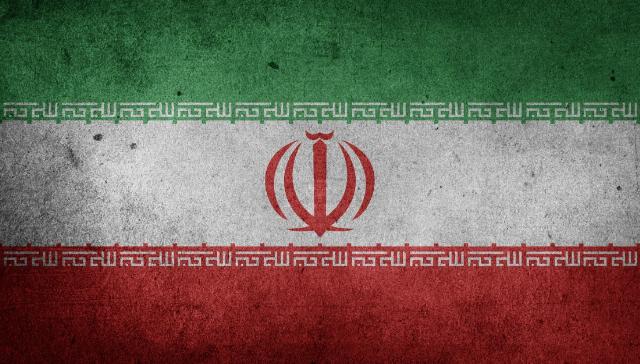Don’t be fooled by another Iran deal
This weekend, the U.S. and Iran are expected to meet again to discuss reviving a nuclear deal. The White House insists that diplomacy is the best way to avoid conflict, and there are quiet signs of optimism from both sides. But let’s be clear: Any new deal with Iran will be unverifiable, unenforceable, and ultimately dangerous.
We’ve seen this before. The 2015 Iran deal brought billions in sanctions relief — and Iran responded with more aggression across the region and secret uranium enrichment. Tehran signs deals for convenience, then breaks them once scrutiny fades. Even the International Atomic Energy Agency, the United Nations’ nuclear watchdog, has been repeatedly denied access to key sites in Iran. Iran’s strategy is simple: Negotiate to buy time, then walk away when it suits the Iranian ambitions.
Some in Washington argue that a revived deal would cap enrichment at 3.67%, far below the 90% level required for weapons-grade uranium. This misses a critical point: 3.67% is already well over halfway there in terms of technical enrichment. Combine that with Iran’s stockpile of centrifuges, and the “breakout time” — the time needed to build a nuclear bomb — shrinks alarmingly.
President Trump has made it clear he wants what’s best for America. I respect his instinct to negotiate from strength and avoid endless wars. Diplomacy, when done with a rational partner, is wise. But diplomacy with a regime built on lies, terror, and deception is a trap. Iran isn’t France or the U.K. — a rational actor seeking a nuclear deterrent. This is a regime that openly calls for the annihilation of Israel and brands the U.S. “the Great Satan.” The Iranians’ hostility isn’t rhetorical. It’s the cornerstone of their foreign policy.
Iran funds and arms virtually every major terrorist proxy in the region, including Hezb’allah, Hamas, and the Houthis in Yemen. These groups have launched attacks on U.S. allies, targeted civilians, and disrupted international shipping. Iran’s regional behavior is not just destabilizing; it’s escalating. Moreover, it’s doing so while under heavy sanctions. Imagine the damage it could do with a nuclear umbrella.
So why continue uranium enrichment while the economy crumbles and inflation soars? Why prioritize centrifuges over food and medicine? The answer is simple: leverage. A nuclear threshold state is harder to deter and punish and far more dangerous.
And yet, Western diplomats continue to treat Iran like a reformable partner. This is a country that executes political dissidents, hangs homosexuals, and jails women for dress code violations and sexually assaults them behind bars.
The Islamic Republic’s survival depends on maintaining control through fear and exporting chaos abroad. It is not a regime that signs treaties in good faith. It is a religious dictatorship that exploits them. If a new deal is announced this weekend, Iran will get what it wants: access to frozen assets, international legitimacy, and time — time to finish what it started, time to wait out inspections, and time to cross the nuclear threshold.
If that happens, the consequences will be swift and dire. A nuclear Iran would spark an arms race across the Middle East. Saudi Arabia has already signaled that it would pursue its own program. Turkey and Egypt could follow. The world’s most volatile region would be dotted with nuclear states with competing interests and shaky leadership. We will inevitably end up with a nuclear arms race across the Middle East.
There’s also the matter of use. Iran doesn’t need to launch a nuclear weapon to benefit from having one. The mere possession of a bomb would embolden its proxies and provide a shield against retaliation. Imagine Hezb’allah, backed by a nuclear Tehran, launching rockets into Israel. Would the U.S. or Europe risk escalation?
The only responsible course, which the West has largely avoided, is to demand total dismantlement. In 2003, the U.S. and its allies successfully pressured Libya to abandon its nuclear program. The centrifuges were removed, and the program was disassembled under international supervision. That is the benchmark for real nonproliferation.
Iran should be offered the same choice: verifiable dismantlement in exchange for sanctions relief. Anything less is a dangerous illusion, and we need to prepare for the reality that is, not the reality we want.
Tehran’s refusal to halt uranium enrichment is a clear sign that it’s pursuing nuclear weapons — and unlike stable powers, Iran would likely use them. Tehran has openly threatened Israel and the U.S. No nation spends billions enriching uranium while its economy collapses — unless it has deadly intent.
The Islamic Republic has shown us who it is. We should take heed.
Harley Lippman is a board member, Columbia University School of International and Public Affairs (SIPA).

Image: Chickenonline via Pixabay, Pixabay License.





